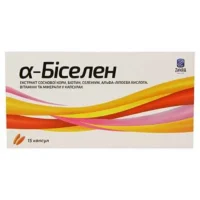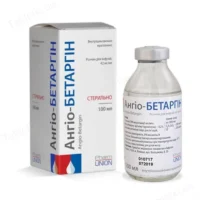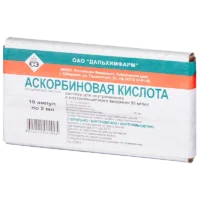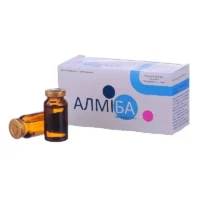Description
Folic Acid Tablets 0.001 №30
Ingredients
Each tablet contains: Folic Acid 0.001 mg.
Mechanism of Action
Folic acid, also known as vitamin B9, is a water-soluble vitamin that is essential for various metabolic processes in the body. It plays a key role in DNA synthesis and repair, cell division, and the production of red blood cells.
Pharmacological Properties
Folic acid is absorbed in the small intestine and converted into its active form, tetrahydrofolic acid. This active form is involved in numerous biochemical reactions, especially in the synthesis of nucleic acids and amino acids.
Indications for Use
Indicated for: Folic acid deficiency, pregnancy to prevent neural tube defects, anemia (especially megaloblastic anemia), and to support overall health and well-being in individuals with increased requirements.
Contraindications
Do not use if: You are allergic to folic acid or any other ingredients in the tablet. Pregnant or nursing women should consult their healthcare provider before using folic acid supplements.
Side Effects
Common side effects of folic acid supplementation may include nausea, bloating, gas, and a bitter taste in the mouth. In rare cases, allergic reactions such as itching or rash may occur. High doses of folic acid may mask vitamin B12 deficiency symptoms.
Usage Instructions
Dosage: Take 1 tablet daily with a meal or as directed by your healthcare provider. Swallow the tablet whole with a glass of water. Do not crush or chew the tablet.
Benefits Compared to Analogues
Compared to other folic acid supplements, Folic Acid Tablets 0.001 №30 provides a precise dosage of 0.001 mg, making it suitable for individuals with specific folic acid requirements. The tablet is formulated for optimal absorption and bioavailability.
Suitable Patient Groups
This product is suitable for adults, pregnant women, breastfeeding mothers, elderly individuals, and individuals with folic acid deficiency or increased folic acid needs due to certain medical conditions.
Storage and Shelf Life
Store in a cool, dry place away from direct sunlight. Keep the product out of reach of children. Check the expiration date on the packaging and do not use the product if expired.
Packaging Description
The product comes in a package containing 30 tablets. Each tablet is individually sealed to maintain freshness and potency. The packaging is designed to protect the tablets from moisture and external contaminants.
Clinical Evidence and Proven Effectiveness
Folic acid supplementation has been extensively studied, especially in the context of pregnancy and neural tube defect prevention. Clinical studies have shown that adequate folic acid intake before and during pregnancy can significantly reduce the risk of neural tube defects such as spina bifida and anencephaly in newborns.





